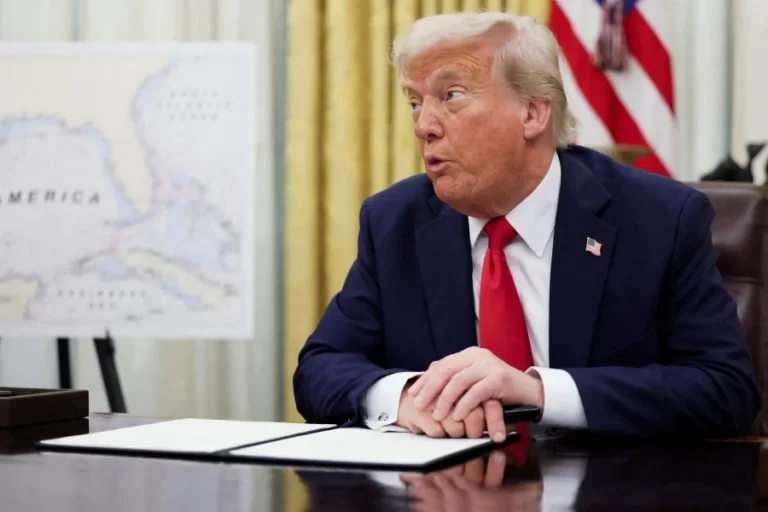
Former U.S. President Donald Trump concluded a four-day Gulf tour on Friday with a significant economic and diplomatic haul, including a landmark agreement enabling the United Arab Emirates (UAE) to purchase advanced American AI semiconductors and a pledge by Abu Dhabi to expand its U.S. energy investments to $440 billion by 2035.
Speaking in Abu Dhabi, Trump confirmed, “Yesterday the two countries also agreed to create a path for UAE to buy some of the world’s most advanced AI semiconductors from American companies, a very big contract. This will generate billions and billions of dollars in business and accelerate the UAE’s plans to become a really major player in artificial intelligence.”
The UAE has been seeking to strengthen its AI capabilities while maintaining a delicate balance between its traditional ally, the United States, and its biggest trading partner, China. As part of the agreement, the AI chips will be managed securely through U.S.-operated data centers, reflecting the Trump administration’s trust in the deal’s safeguards.
The tour, which included stops in Saudi Arabia, Qatar, and the UAE, emphasized economic partnerships over Middle East security tensions. During a press appearance, Trump noted, “We’re making great progress for the $1.4 (trillion) that UAE has announced it intends to spend in the United States,” referencing a 10-year investment framework agreed upon in March. The framework spans sectors like energy, AI, and manufacturing and is intended to deepen reciprocal economic ties.
New business deals announced during the trip totaled over $200 billion. Among them was a $14.5 billion commitment by Etihad Airways to purchase 28 Boeing aircraft made in the U.S.
Abu Dhabi National Oil Company (ADNOC) CEO Sultan Al Jaber presented the energy investment plan, stating that the UAE’s energy holdings in the U.S. will grow from $70 billion to $440 billion by 2035. “Our partners have committed new investments worth $60 billion in upstream oil and gas, as well as new and unconventional opportunities,” said Jaber. He highlighted collaborations involving major U.S. energy firms including ExxonMobil, Occidental Petroleum (Oxy), and EOG Resources.
Jaber also confirmed that ADNOC’s global investment arm, XRG—of which he serves as executive chairman—intends to make a substantial investment in U.S. natural gas. He also serves as the UAE’s Minister of Industry and Advanced Technology.
In a major shift in U.S. foreign policy, Trump announced the removal of sanctions on Syria, a move encouraged by Saudi Arabia. This led to an $800 million memorandum of understanding between Syria’s government and Dubai-based DP World for the development of the port of Tartous, according to Syrian state news agency SANA.
Trump, speaking aboard Air Force One, confirmed that he had not consulted Israel—Syria’s historical adversary—prior to recognizing the Syrian interim government led by Islamist President Sharaa. “I didn’t ask them about that. I thought it was the right thing to do. I’ve been given a lot of credit for doing it. Look, we want Syria to succeed,” Trump stated.
He also called on Sharaa to normalize ties with Israel and join the Abraham Accords, the U.S.-brokered agreements that previously led to normalization between Israel and countries such as the UAE, Bahrain, and Morocco.
On Iran, Trump reiterated that Tehran had received his administration’s proposal for a new nuclear agreement and hinted at a limited window for diplomacy. “They have a proposal. More importantly, they know they have to move quickly or something bad—something bad’s going to happen,” he warned reporters, just a day after stating that Washington and Tehran were nearing a deal.
With his return to Washington, Trump concluded a tour that prioritized economic diplomacy and sought to reinforce U.S. economic ties with Gulf allies amid evolving regional dynamics.
